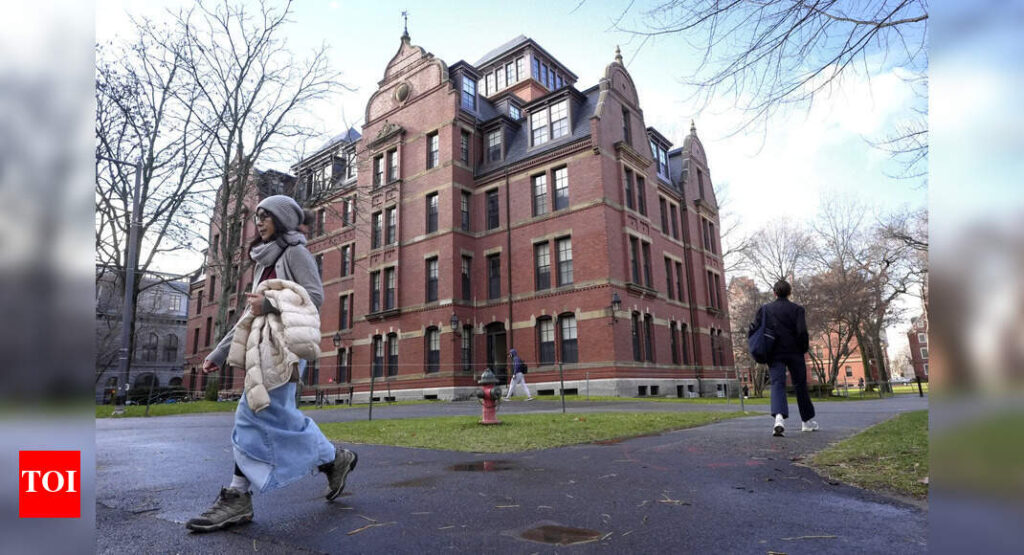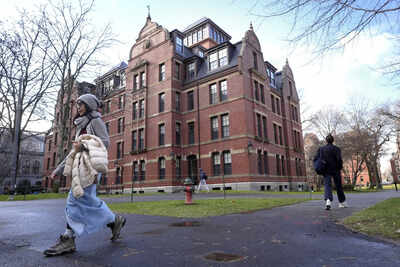Harvard strips 900 graduate students from union coverage: Why the university says research isn’t considered work

When Lindsey E. Adams, a Doctor of Philosophy (Ph.D.) student in Harvard’s virology program, opened her July 1 pay stub, she noticed something unsettling. Her research stipend was no longer listed as a union stipend, and no union dues were being deducted. Yet nothing about her day-to-day work had changed — not her hours, her supervisor, the lab, or the tasks she performed.Adams was among more than 900 graduate students on research-based stipends removed from the Harvard Graduate Student Union-United Automobile Workers’ (HGSU-UAW) bargaining unit shortly after the union’s second contract with the University expired in June, as reported by The Harvard Crimson. Without union representation, these students are now excluded from contract protections, including benefits, access to union funds, and the pay raises currently under negotiation in the union’s third contract.
Understanding the University’s rationale
The removals have prompted questions about Harvard’s criteria for excluding students who the University asserts are not employees. More than a month after the change, the HGSU-UAW is still trying to determine whether there is a path to appeal the decision, according to reporting by The Harvard Crimson. While unions might normally contest such actions by filing an unfair labor practice (ULP) charge with the National Labor Relations Board (NLRB), the political composition of the board complicates matters. Michael C. Harper, professor emeritus of labor law at Boston University, noted to The Harvard Crimson that under the Trump administration’s pending appointments to the NLRB, “a case involving student workers could be used to eliminate students’ right to unionize. Such a decision would be a near certainty.” For now, the union is pursuing the grievance procedures outlined in its contract. Officials filed a grievance against Harvard on July 21 and submitted a request for information on July 30, The Harvard Crimson reported. The grievance alleges multiple contract violations, including those related to the composition of the bargaining unit and worker classifications. The union also contends that the removal violates the union security clause, which enables automatic paycheck deductions for dues. According to HGSU-UAW financial secretary Simon A. Warchol, a Computer Science Ph.D. student, the union risks losing “anywhere from 25 to 40% of the dues that Harvard automatically deducts from workers’ paychecks each month,” as he told The Harvard Crimson.
A unilateral interpretation
HGSU-UAW vice president Sudipta Saha told The Harvard Crimson, “We believe this violates not just the unit definition that we have in the contract, but the union definition that we have operated on ever since we’ve had the first elections whose results were certified by the NLRB. They very explicitly say that all research assistants are included, regardless of funding source, and the University has decided to kind of unilaterally change their interpretation.” Harvard, in contrast, maintains that the excluded students are not employees covered by the contract. The University has argued that stipended students’ research does not constitute employment because it supports their academic work towards a degree and is not tied to performing specific tasks for compensation. Harvard Law School professors Sharon Block, Benjamin I. Sachs, and Laura M. Weinrib ’00, writing for OnLabor, called this rationale “implausible” and noted that it “runs counter to recent history in the law and at Harvard.” They referenced a 2024 MIT decision excluding stipended fellows from union coverage but argued that it does not automatically justify Harvard’s action. The professors concluded to The Harvard Crimson, “It would be surprising, in other words, if no Harvard graduate student who receives a stipend does any work that is controlled by Harvard.”
Navigating grievance procedures
The union met with Harvard officials on August 4 under Step One of the grievance process. In his official response, Director of Labor and Employment Relations Brian Magner wrote to the union that “the University finds no contractual violation has occurred and therefore the grievance is denied,” as detailed by The Harvard Crimson. If the grievance proceeds to Step Two and Harvard again rejects it, arbitration may be pursued. However, the University is likely to contend that the issue is not arbitrable, citing that the student removals occurred after the union’s contract expired on June 30. The union argues that because pay stubs on July 1 already reflected changes in union representation, the matter may indeed be subject to arbitration, according to The Harvard Crimson.
Disparate impact across schools
More than half of the affected students are part of Harvard Medical School’s Division of Medical Sciences. First- and second-year Ph.D. students, typically funded by the division or by National Institutes of Health grants, were heavily impacted. For third-year students and beyond, funding streams can be more complex, and removals are less uniform. Laila B. Norford, a union steward and third-year Ph.D. student in biomedical informatics, told The Harvard Crimson that “most students in hospital-based or hospital-affiliated labs have been removed, as have those fully funded on fellowships.” Adams was likely excluded because her principal investigator, Daniel Lingwood, holds a secondary appointment at Mass General Hospital’s Ragon Institute. Norford noted additional ambiguity for students funded by multiple sources: “Some workers have been partially removed from the union — union dues have been automatically deducted only from their non-stipended pay,” she told The Harvard Crimson.
Student concerns and uncertainty
Albert T. Chen, a fourth-year Ph.D. student and HGSU-UAW bargaining committee member, described the process as “very arbitrary” to The Harvard Crimson: “There’s some workers that are doing the same work, in the same labs, in the same program. Some are being carved out, some aren’t.” The University has maintained communication through emails, but clarity remains limited. DMS executive director Samantha Reed reiterated July 2 updates to students in a July 25 email, noting that unionized students would be paid biweekly without salary increases over last year due to ongoing negotiations, according to The Harvard Crimson. Students have also used pay periods to gauge whether they remain part of the union. Norford summarized the broader impact of the uncertainty: “It’s just kicking the scientists while we’re down. We’re already suffering and struggling so much because of what the federal government is doing, but also because of how Harvard’s responding to it. And now what they’re doing in this moment is trying to make it harder for all of us,” as she told The Harvard Crimson.
The path ahead
As the grievance process continues, students and union leaders are seeking transparency from the University regarding its classification decisions. The situation raises questions about how academic institutions define employment and the protections graduate student workers are entitled to. For Adams and her peers, the stakes are immediate. Union representation determines pay, benefits, and workplace protections, and Harvard’s stance marks a significant shift in how the University defines the work performed by research-based graduate students.TOI Education is on WhatsApp now. Follow us here.






